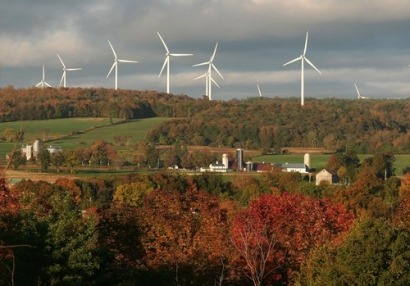
The new UK Energy Bill, which is expected to be published officially tomorrow at 11.30 has received a lukewarm response from environmentalists and the UK renewable energy sector, although it does grant some stability to investors.
The Department of Energy and Climate Change (DECC) maintains that reforms are needed urgently given that around a fifth of the UK’s electricity generating capacity is due to close this decade. DECC believes that £110 billion worth of infrastructure is needed to stop the ‘lights going out’. In response the government has given energy companies permission to add up to £7.6 billion onto energy bills in order to pay for new generation methods. However, it has stopped short of supporting decarbonisation of the energy sector by pushing a decision on the matter backwards to a new date after the 2016 election, when it will be the subject of secondary legislation. Overall however, the new UK Energy Bill has been described as ‘disappointing’ by the green building sector over its lack of focus concerning energy efficiency.
“It’s very disappointing to see the totemic decarbonisation target has been punted into the long-grass, but agreement has been reached on some important areas, which should pave the way for more low-carbon investment” said Paul King, CEO of the Green Building Council. “What is abundantly clear, but hasn’t had the prominence it deserves, is the importance of energy efficiency, in buildings and across the economy, if we’re to have any hope of meeting our carbon targets and keeping energy bills from spiralling out of control.”
Labour leader Ed Milliband reacted to the lack of a decarbonisation target by promising to adopt it instead. Lib Dem Energy Secretary Ed Davey wants decarbonisation by 2030 but the Chancellor, George Osborne, want gasification after that date. The result has been constant bickering within the coalition in the lead up to the publication of the Bill. Osborne has now got his way with the postponement of a decision on decarbonisation. He scored another victory by securing a promise for a gasification strategy on December 5th, however Davey also won a victory by winning a cap on how much energy companies can charge consumers. He has also managed to maintain subsidies for wind farms, thereby enraging a number of right-wing Tory MP’s who have been particularly vocal in their opposition to wind.
Bibi Van Der Zee, writing in The Ecologist, said that the Bill effectively sucks up to the big energy companies. Green Party MP Caroline Lucas commented that she couldn’t see much in the way of a coherent energy policy in the new bill while Mark Kenber, CEO of The Climate Group described the new act as a missed opportunity.
“It does not put emissions reduction at the heart of the UK’s energy policy” Kenber said. “It does not put the UK on a long-term low-carbon, sustainable, clean energy path. The Bill is more of a grand compromise; and like all compromises it deals more with the present and the short-term than with the future.”
Nevertheless, investors will be glad to hear that the Bill promotes ‘contracts for difference’ – long term contracts which guarantee stable revenues for investments in low carbon projects. The Bill also creates a new government-owned body to act as a single counterparty to the contracts and pushes for a 30% share of renewables in the UK energy mix by 2020. Under the Levy Control Framework, spending on renewables will be increased to £7.6 billion ($12 billion) per year by 2020, from the current figure of £2.35 billion, in order to reduce dependence on gas.
Further information:
Department of Energy and Climate Change (DECC)
Commentary by Bibi Van Der Zee, The Ecologist

